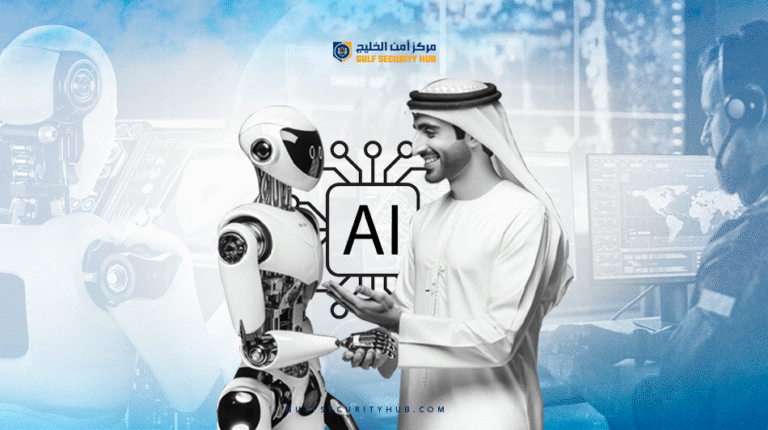Executive Summary
Artificial intelligence (AI) has become a cornerstone of the United Arab Emirates’ strategy to consolidate its position as a rising regional and global power. Leveraging AI, the UAE aims to build new dimensions of influence that extend far beyond its traditional strengths in energy and finance, reaching deep into the realms of security, defense, and economic leadership.
Since launching its National AI Strategy in 2017, the UAE has positioned artificial intelligence at the heart of its policy agenda. This move reflects its ambition to accelerate economic diversification and expand its global alliances through cutting-edge technology.
In the security domain, the country has implemented the “Oyoon” (Eyes) project, which plays a pivotal role in transforming urban environments into smart, interconnected ecosystems. Tens of thousands of AI-powered surveillance cameras monitor activities across cities, enabling rapid responses to potential threats. This initiative has effectively turned the UAE into a living laboratory for AI-driven security solutions.
Economically, the UAE has deepened its global footprint through multi-billion-dollar partnerships with leading global tech firms, as part of its StarGate global initiative. These partnerships are further bolstered by strategic bilateral agreements with major powers such as the United States and France, focusing on digital infrastructure development and localization of AI technologies.
In defense, the UAE has rapidly emerged as a key player in the race for smart military capabilities. It has made significant investments in unmanned systems, combat robotics, and AI-powered defense solutions. The country has also established critical partnerships, notably with Israel, to co-develop advanced military optical systems. These efforts were prominently showcased at IDEX 2025, where Abu Dhabi unveiled domestically produced smart weapons, underscoring its growing role in the global defense technology market.
For the UAE, artificial intelligence is no longer merely a tool for domestic capacity building — it has evolved into a central pillar of its geopolitical strategy. Each major investment and international partnership reflects the country’s ambition to secure a front-row seat in shaping the new global power equations increasingly defined by AI supremacy.
This strategic shift has elevated the UAE into an indispensable partner in the digital future. Its efforts transcend technology to influence global political positioning, demonstrated by moves such as reducing ties with China to align more closely with Washington in the sensitive domain of advanced semiconductors and chips.
On the defense front, the UAE is no longer a conventional weapons importer. Through major partnerships, such as those with Israel and national champions like EDGE Group and G42, it has become an active participant in the co-development and production of smart weapons. This growing defense ecosystem has enhanced Abu Dhabi’s leverage and bargaining power on the global stage.
The UAE’s investment in artificial intelligence is about more than economic gain; it is about crafting a blend of hard and soft power. Early on, the UAE grasped a fundamental truth of the 21st century: whoever masters artificial intelligence will hold the keys to global influence. Consequently, its strategy is part of a long-term vision aimed at reshaping global power dynamics, where algorithms increasingly replace armies as the main drivers of influence and decision-making.
In today’s world, military and intelligence superiority is virtually inseparable from mastery of ultra-sophisticated AI programs — a reality that is especially resonant in the Middle East, one of the world’s most volatile and conflict-prone regions.
Nevertheless, this quest for regional and global influence is not without risks. The UAE faces serious challenges and fierce competitors, and the path forward is likely to be fraught with obstacles and strategic dilemmas.

